The Underground Exotic Wildlife Trade
In response to the worldwide phenomena that is Netflix’s wildly successful Tiger King docu-series, many viewers now understandably have questions about where and how the sale of exotic animals takes place. That is, other than in back-alley handshakes between Joe Exotic and Doc Antle. Having observed sales of exotic animals on the darknet in the past, we decided put together this briefing on how darknet vendors market and sell animals and animal parts in underground markets.
We were also interested to see if there has been an uptick in this type of listing, or an uptick in the demand for these types of purchases as a response to the Netflix series. The conclusion we came to is both good and bad – depending on your stance on exotic wildlife and animal sales. From what we can tell, while there hasn’t been a noticeable surge in the actual exchange of wild animals (or animal goods such as ivory), there is still a thriving marketplace that shows no sign of slowing.
Read on to see some real-life vendor listings on the darknet, including advertisements for the sale of Black Cougar cubs, Jaguar cubs, baby Gorillas, and many more. Note: DarkOwl does not endorse nor support these vendors, sales, or listings in any way. DarkOwl has historically partnered with organizations such as the Global Emancipation Network and Kruger Park to eradicate human and animal exploitation.
Source: Image via Pixabay
Lions, Tigers, and Bears, Oh My
Long before Netflix’s Tiger King became one of the most popular series on television, DarkOwl analysts reaffirmed the existence of an elaborate black market on the darknet driven by the exotic wildlife and animal poaching industry. The following findings from DarkOwl Vision introduce some of the darknet’s leading vendors in the darknet wildlife trade community, along with their sources.
According to a 2017 report published by INTERPOL, the darknet, specifically Tor anonymous network, has been a source for illegal wildlife trade since 2015, likely even earlier as inferred by some open source blogs discussing animal endangerment. Using DarkOwl Vision, queries including exotic wildlife market keywords quickly revealed a number of interesting results across darknet markets and forums. One vendor in particular, “ivoryking” (a.k.a africanivoryking) has the largest darknet presence in the database, with over 150 documents in DarkOwl Vision advertising African ivory and exotic pets including lion and cheetah cubs, Nile crocodiles, leopards, and baby gorillas across multiple authenticated hidden services.
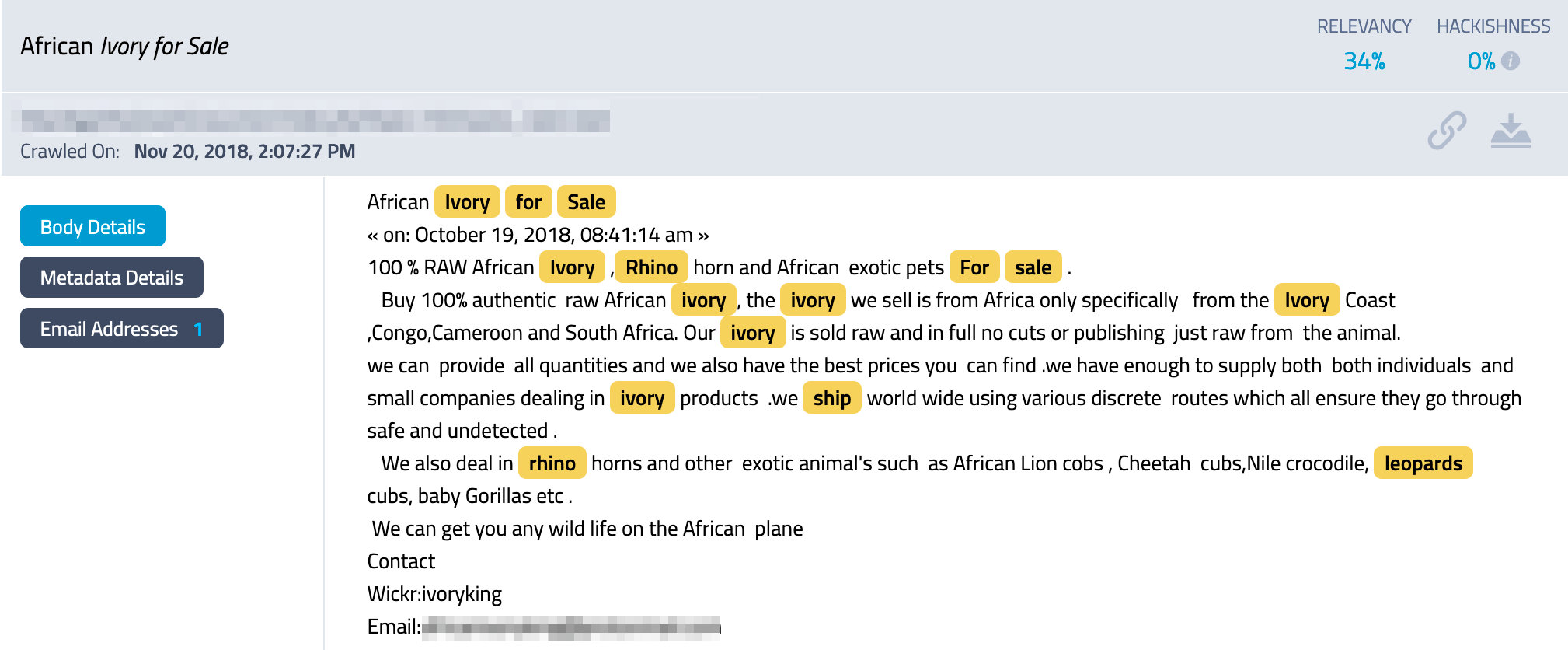
DarkOwl Vision MD5: 8fea97f581c4d7c7dff7691c27371f2c
Many other offers are less commercialized and contain something akin to a local classified advertisement for the exotic animals trade as the user, “busuloveline” posted on the deep web offering foxes, cheetahs, and tigers. Another thread, posted late last year on an Italian darknet forum, listed a number of different types of “exotic pets” for sale and included a Surface web gmail account for contact. The disturbing part of this listing was that not only “dog meat” was included, but the advertiser also differentiated the items available from a “Bear – Complete” and “Bear paws.” Neither listing included prices for the animals.
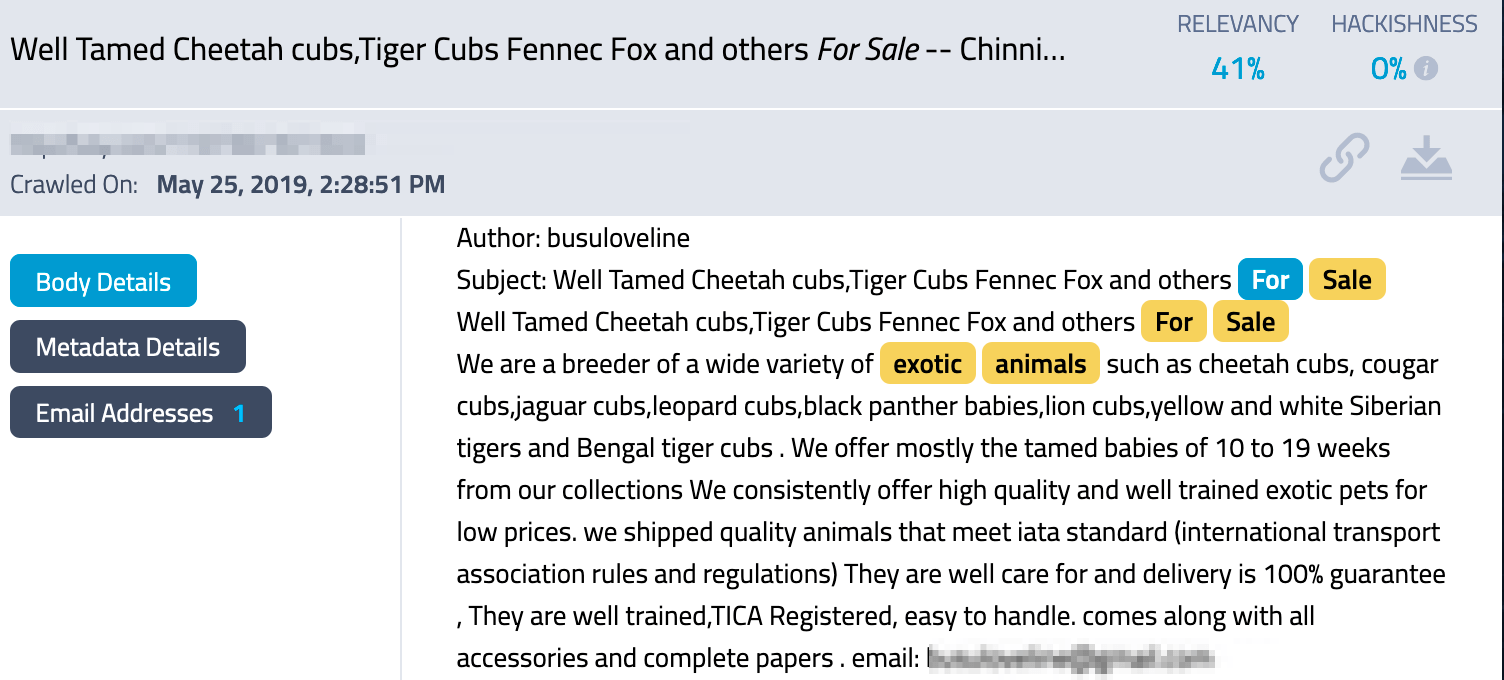
Source: DarkOwl Vision – Doc ID/MD5: 32ce51c47421bb389b776ceaee135e41
![Image Sourced Directly from Tor: http://ferkey4nox6vbqwr[.]onion/viewtopic.php?f=9&t=55789](https://www.darkowl.com/wp-content/uploads/2021/12/Piazza-ExoticPetsTor.png)
Image Sourced Directly from Tor: http://ferkey4nox6vbqwr[.]onion/viewtopic.php?f=9&t=55789
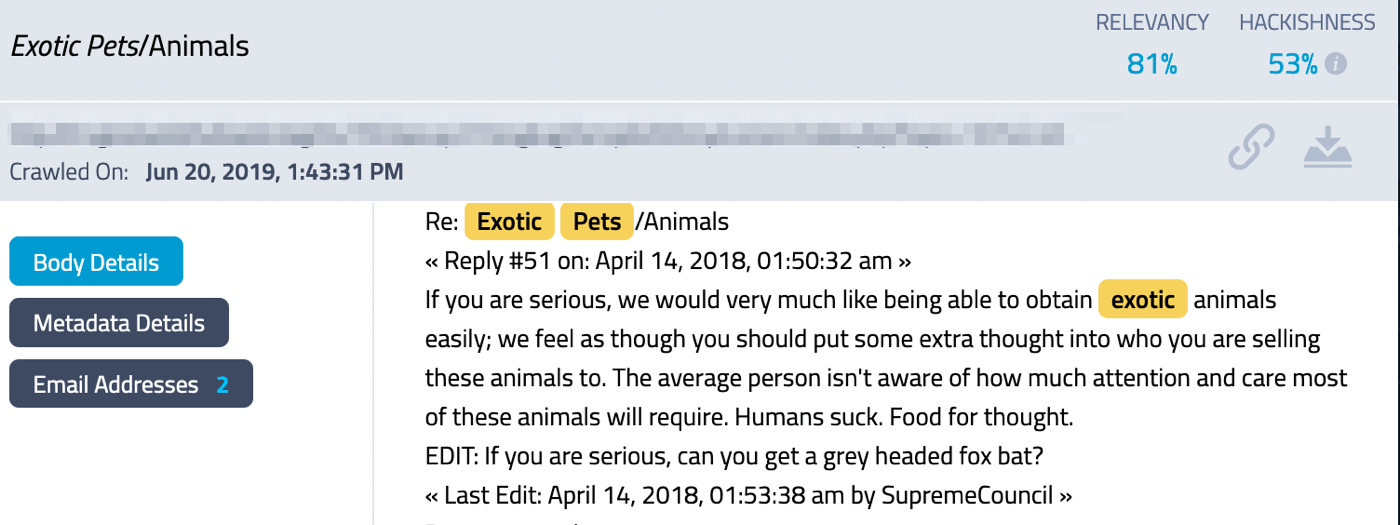
Source: DarkOwl Vision – Doc ID/MD5: 9be8ce6409fb6bf98ed7f26822181dfa
During the summer of 2019, on The Majestic Garden (TMG) forum, a member known by the moniker “SmallFryHoolagin” initiated a lengthy discussion with an offer for exotic pets, suggesting this is a new business trade they were interested in starting. In their post, SmallFryHoolagin stated that they would only offer to sell to the TMG community and was looking for animal recommendations.
Responses included everything from “is this a joke?” to the desire for exotic serval cats and Komodo dragons. Many replies alluded to keen interest in toads (e.g. bufo alavarius species) that are often exploited for their hallucinatory effects from the 5-MeO-DMT molecule on their skin.
The popular thread garnered over 5,000 views in the forum and the comments are insightful regarding trends in the market demand on the darknet.
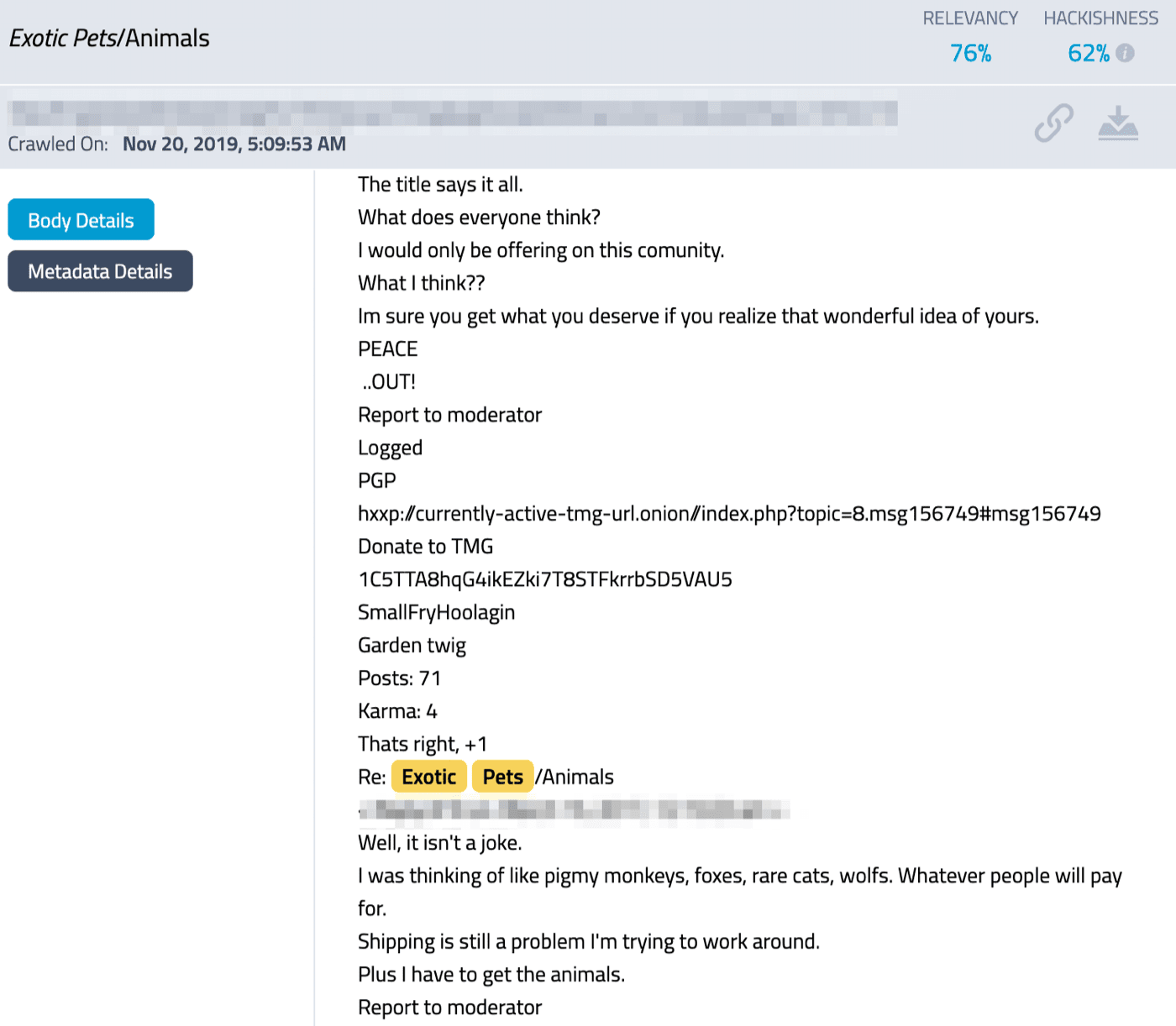
Source: DarkOwl Vision – Doc ID/MD5: adbdc331e235611b62c2f1be1b38c462
Other darknet exotic animal enthusiasts merely discuss the implications of trying to sell these types of items without getting arrested, like SmallFryHoolagin, sussing out whether or not the industry is profitable and open for business. This type of data could be used as an investigatory thread for future exotic animal trading on the darknet.
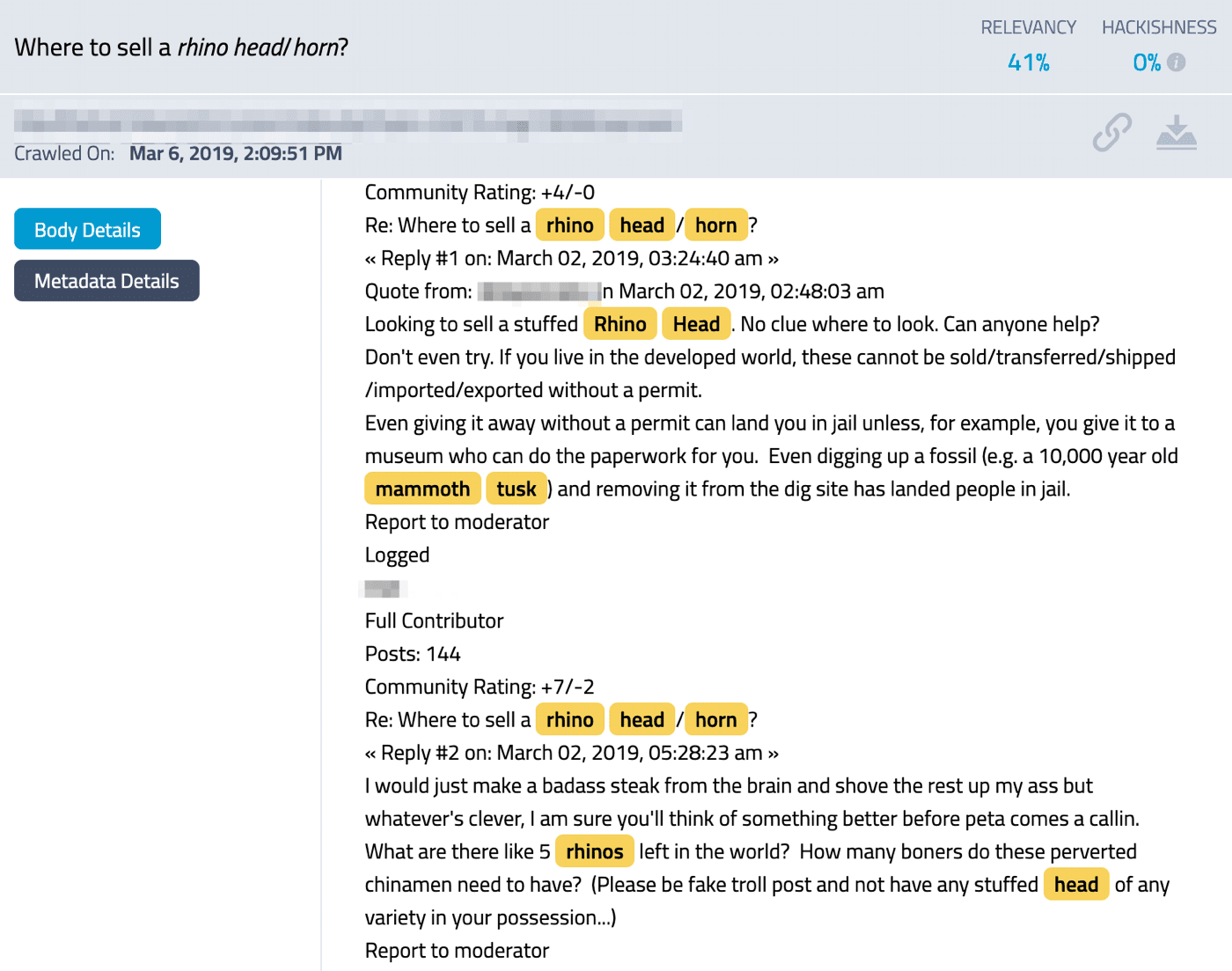
DarkOwl Vision MD5: c59bab2212a7dd4b782ace54d78d193d
Inside Sources
One vendor on the darknet, calling themselves the “Rough Diamond/Gold & Fossil Export,” also references a surface web URL that directs to “Fossil Realm,” a legitimate Canadian company based in Ottawa that trades in rare fossils, minerals, meteorites and colored gemstones. Many of the minerals are purchased from abandoned packages at shipping companies, meaning they have been shipped illegally.
Fossil Realm’s darknet market advertisement mentions their acquisition methods, stating that much of their gold, rhino horns, and elephant tusks are supplied by corrupt government officials, who apparently only seize some of these items on an arbitrary basis.
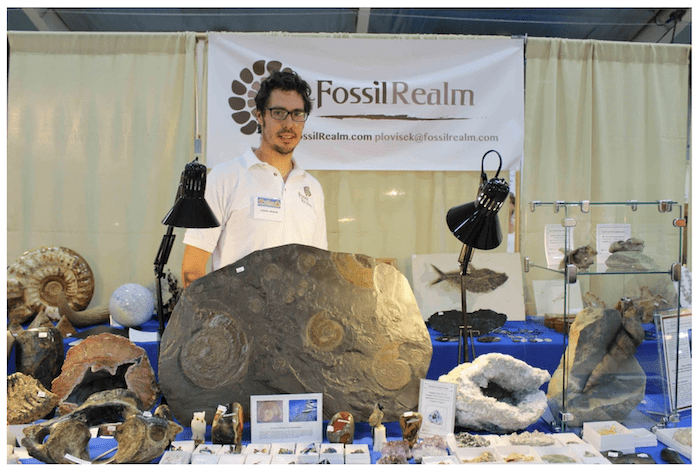
Source: http://www.fossilrealm.com
In at least one instance, Fossil Realm has publicly stated that their darknet marketplace listings provided more than 60% in profit, and that all of these transactions were done using Bitcoin (BTC). (pictured below)
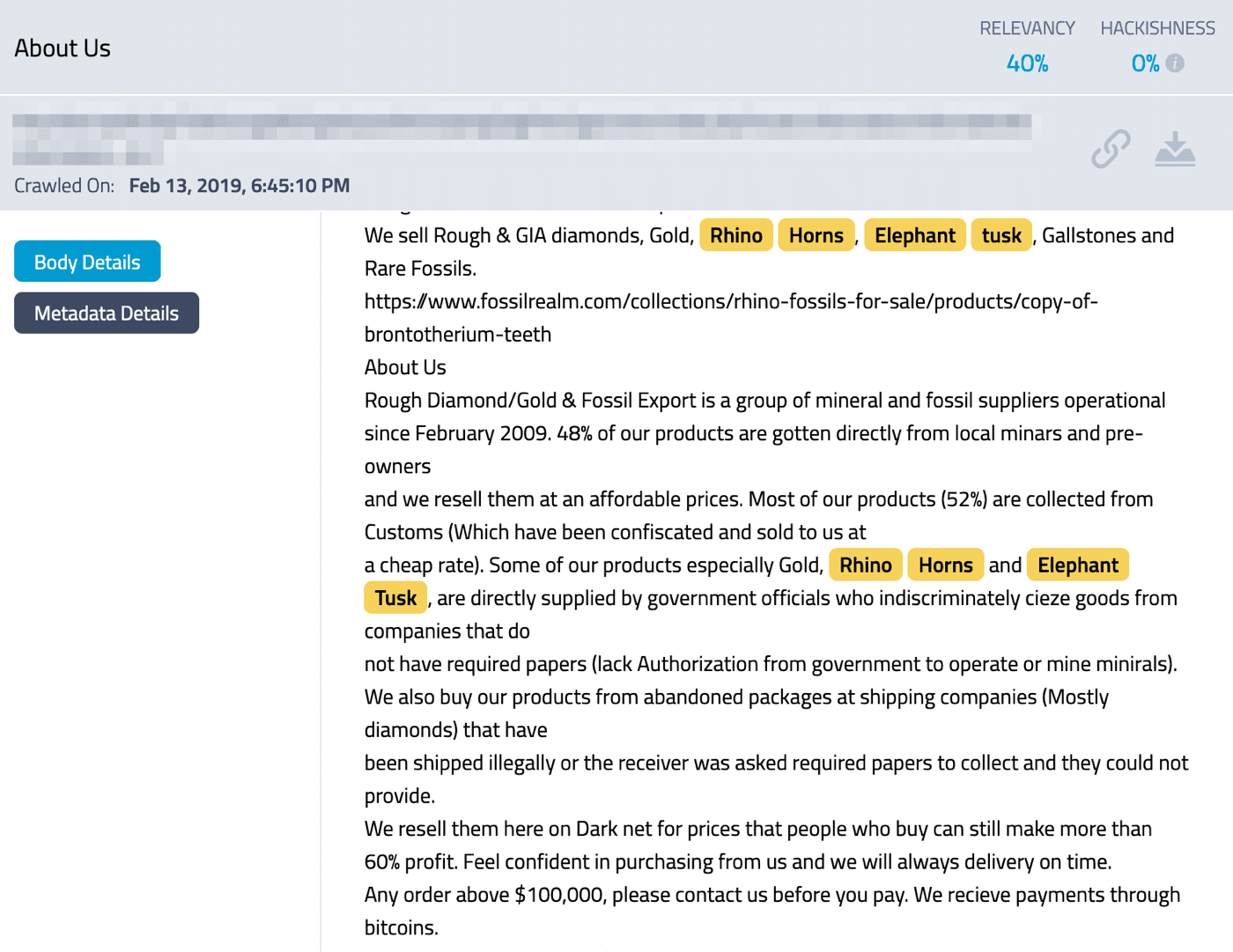
Source: DarkOwl Vision – Doc ID/MD5: 18b8a2a6587bf4b70d8b22baea36a0e6
Another darknet Rhino horn vendor claims they source their products from South Africa and are attempting to create a sustainable market by working with the breeder to allow for horn regrowth between harvesting sessions.
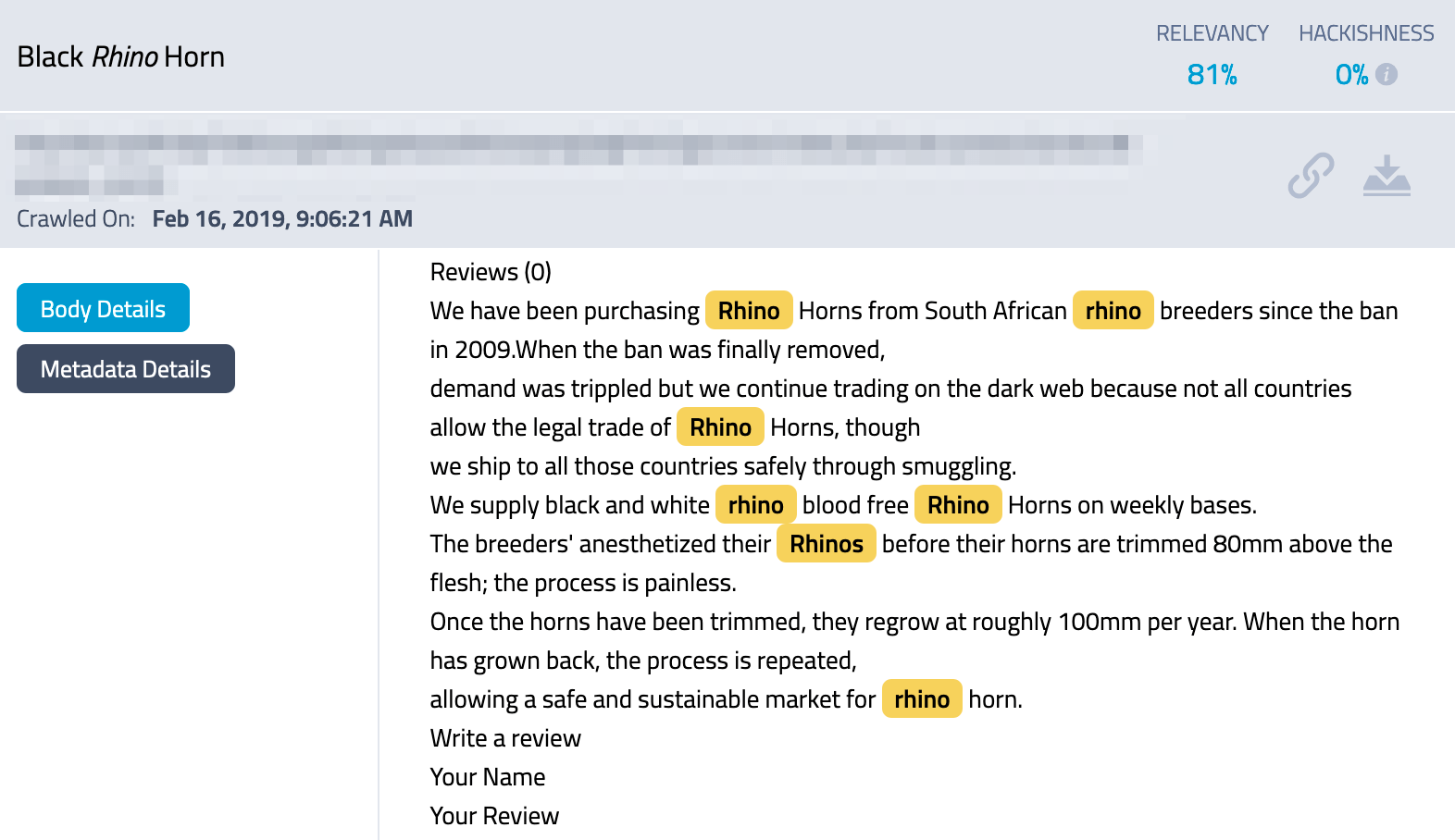
Source: DarkOwl Vision – Doc ID/MD5: 24e2929da44c76660230ba525669e171
Exotic animals sourced around the Canadian border
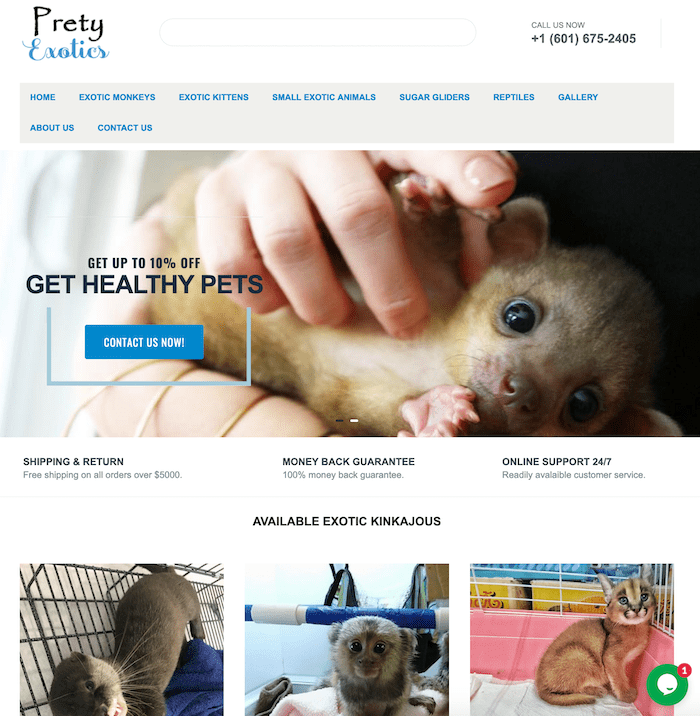
Image Discovered on http://www.pretyexotics.com
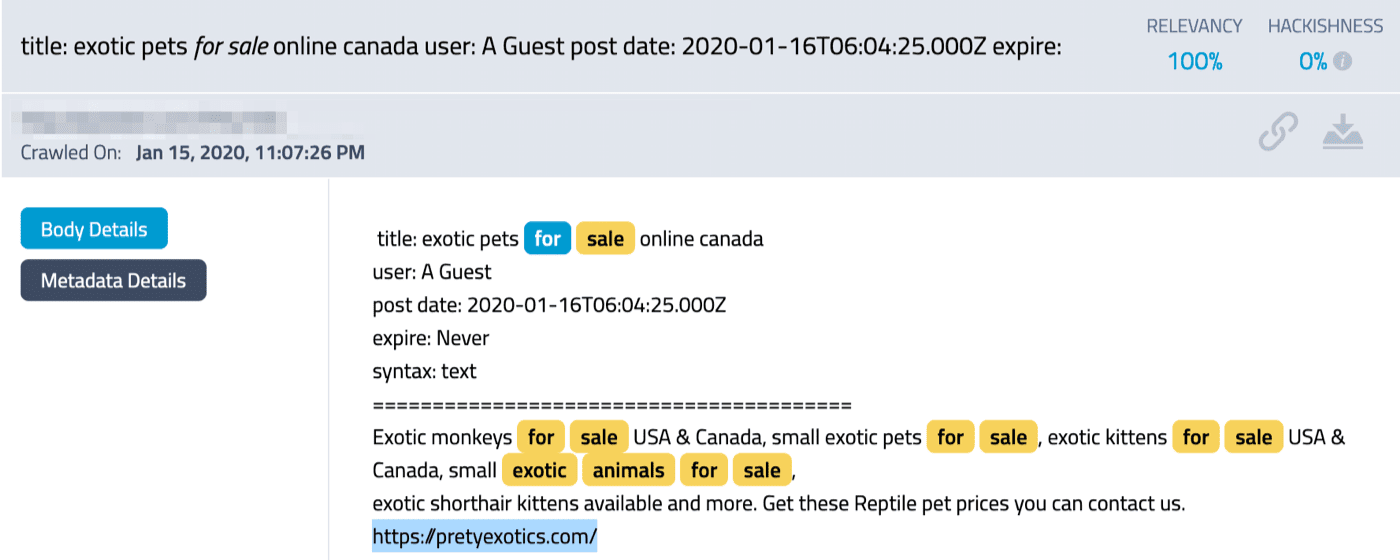
Source: DarkOwl Vision – Doc ID/MD5: be0527743e8d7239c8e9d7b92ef28976a
Based on our research, Canada appears to be a popular source for animal goods including, exotic tusks. For example, one darknet vendor – who recently advertised their trade operation on the controversial darknet market Open Bazaar – stated that their products ship from Alberta (pictured below).
Another deep web classified forum for exotic animals, Prety Exotics (pictured right and above) modeled a marketing approach reminiscent of Fossil Realms’ and included their surface web domain and shopfront in their darknet listing. At the time of publication, Prety Exotics lists their company location as being in Maplewood, Minnesota, which is on the Canadian border.
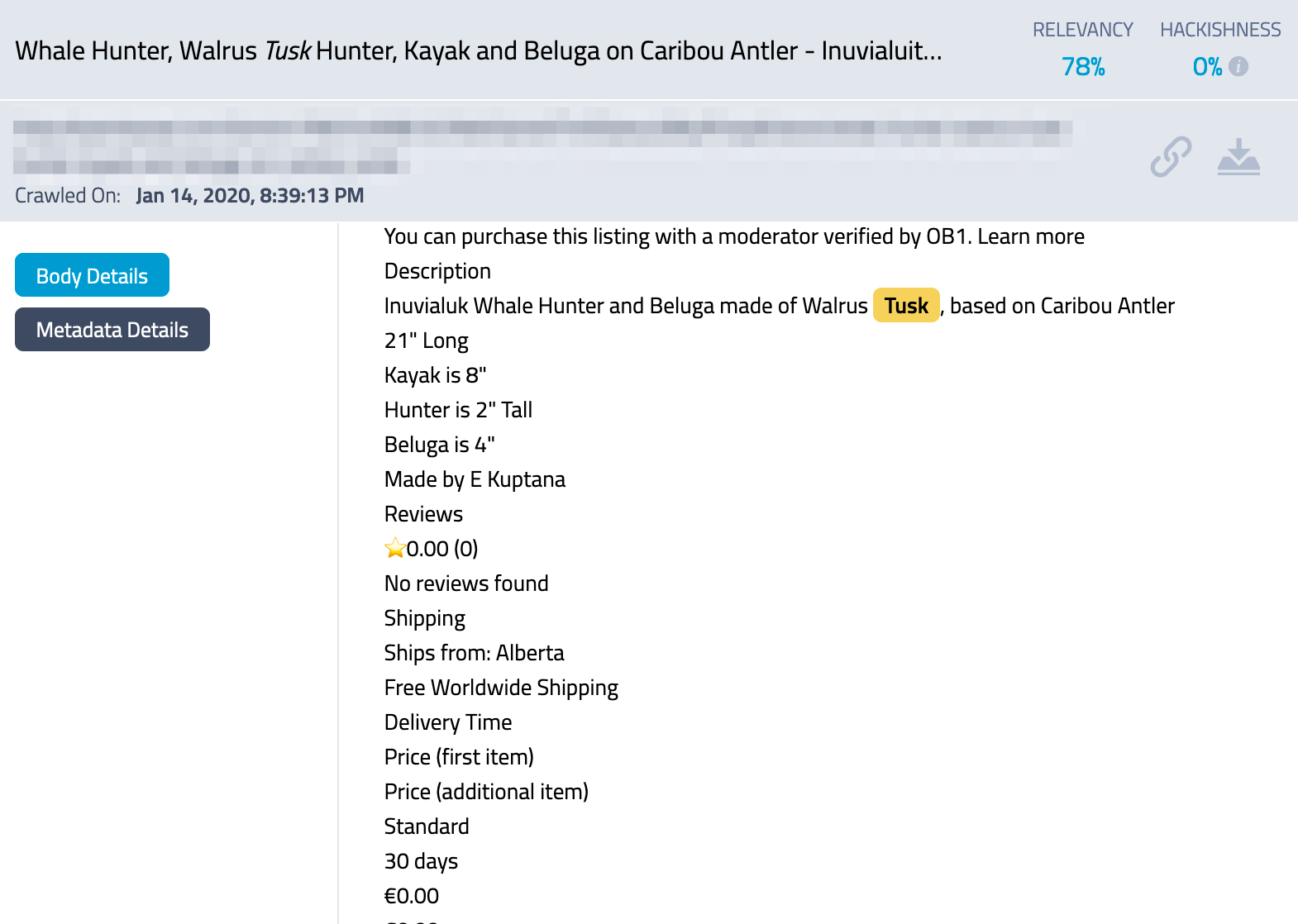
Source: DarkOwl Vision – Doc ID/MD5: fdc9165a1b168648846ed91b6b3b459a
Despite international law enforcement efforts to track down and stop the trafficking of exotic and endangered species, the darknet wildlife trade industry persists, leveraging the anonymity of the network. Meanwhile, many poachers have shifted to trading these animals openly on platforms like eBay and Facebook.
DarkOwl will continue to monitor this and similar topics of interest to our clients. Stay tuned for future content from our analysts and darknet researchers.
Explore the Products
See why DarkOwl is the Leader in Darknet Data
Products
Services
Use Cases















